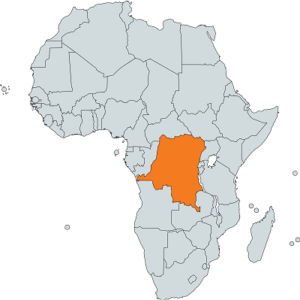Democratic Republic of Congo
Background

The Democratic Republic of Congo, home to an estimated $24 trillion in natural wealth, has been plagued by armed conflict, political violence, and grand corruption for decades. Since the early 1990s, eastern Congo has been home to the world’s deadliest war since World War II, with 5.4 million people dead as a result of war-related causes.
Serious human rights violations are symptoms of Congo’s long line of violent kleptocratic regimes that have repressed civilians and hijacked the state to amass personal wealth and maintain power. Competition over natural resources like minerals, oil, and charcoal has helped fuel atrocity crimes like child soldier recruitment and rape in the east. Ruling elites and their external business partners use porous regional borders and blind spots in the international financial system to generate and hide profits. Armed groups and corrupt military units have contributed to conflict, impunity, and the tightening of political space.
Four minerals in particular – gold along with tin, tungsten, and tantalum (3Ts) – have fueled and continue to help sustain armed violence in Congo. These “conflict minerals” end up in consumer products such as cell phones, jewelry, and cars, which means end-user companies can help effect change by conducting supply chain due diligence to assure the minerals in their products benefit legitimate Congolese miners rather than armed groups. This shift in company policies, brought on by consumer activism and the passage of the U.S. conflict minerals law – Section 1502 of the Dodd-Frank Wall Street Reform and Consumer Protection Act – has contributed to some important improvements in eastern Congo, but conflict gold and support for Congolese mining communities remain key issues that must be addressed.
Grand corruption has also been endemic, particularly in the copper, cobalt, and oil sectors. During former President Joseph Kabila’s tenure, up to $4 billion per year has gone missing or been stolen due to the manipulation of mining contracts, budgets, and state assets. This follows trends set by King Leopold, the Belgian colonial authorities, Mobutu Sese Seko, and Kabila’s father Laurent Desire. These leaders’ international partners have also profited significantly, for example when outsiders paid $100 million in bribes to Congolese officials in order to receive billions of dollars worth of mineral concessions.
The United States and Europe have important roles to play in supporting peace, democracy, and accountability. Financial pressure, including targeted sanctions and anti-money-laundering measures, should be used to further the policy goals of democratic change and transforming Congo away from a violent kleptocratic system.

